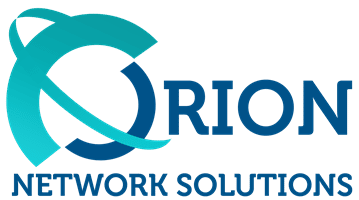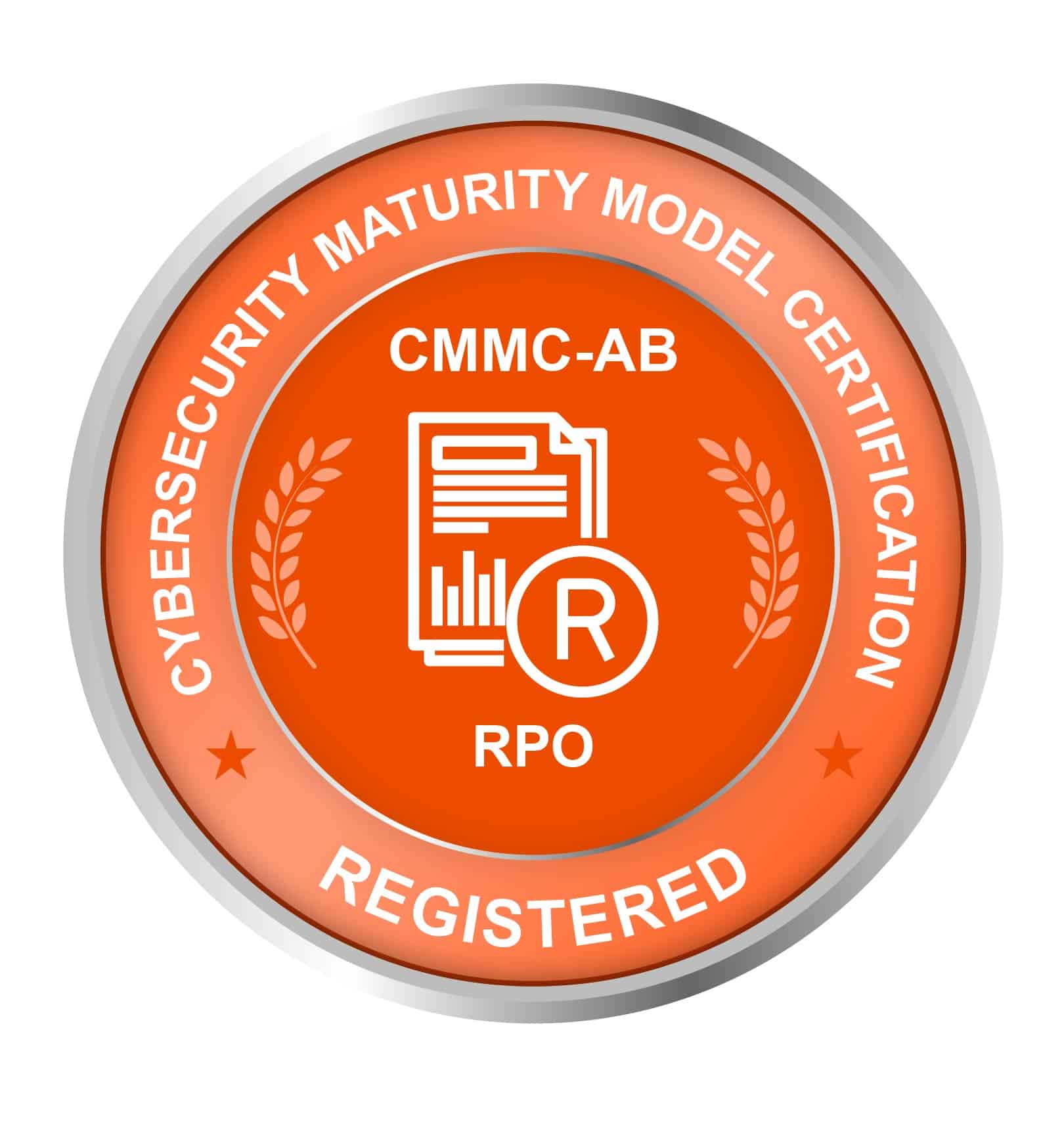Orion Networks Releases New Guide: Cyber Security Protection for Washington DC Nonprofits
In response to the growing cyber threats facing nonprofit organizations in the Washington DC area, Orion Networks has developed a comprehensive guide to bolster cybersecurity measures. This guide is crucial when cybercriminals increasingly target nonprofits due to their valuable data and often less stringent security protocols than for-profit entities. It is tailored to address nonprofits’ unique challenges, including limited resources and specialized compliance requirements.
The guide provides actionable strategies for Washington DC’s nonprofit sector to enhance their cybersecurity posture. It emphasizes the importance of understanding the current cyber threat landscape and how to build a secure network infrastructure that protects against potential cyber attacks. Furthermore, the guide underscores the need to create a culture of cyber security awareness among all organizational members, ensuring they become the first line of defense against cyber threats.
Key Takeaways
- Nonprofits must stay informed about potential cyber threats and how they operate.
- Implementing strong network security protocols is crucial for protecting sensitive data.
- Fostering a culture of cybersecurity awareness within an organization can significantly reduce risks.
Overview of Cyber Security Challenges for Nonprofits
In the digital age, your nonprofit organization faces unique cybersecurity challenges. Limited budgets and resources often mean you may struggle to implement adequate security measures. An understanding of these challenges is the first step toward better protection.
- Resource Constraints: You may find a mismatch between the cybersecurity measures you need and the available resources.
- Data Sensitivity: You regularly handle sensitive data, including the personal information of donors, beneficiaries, and staff.
- Threat Landscape: Cyber threats constantly evolve, and keeping pace requires your attention and swift action.
Cybersecurity Frameworks: Utilizing guidelines, such as the US National Institute of Standards and Technology (NIST) Cybersecurity Framework, can help you identify and manage risks effectively.
Remember, cyber threats can target any organization, large or small, and the consequences of a breach can be severe. It’s not just about financial loss; your reputation and the trust of stakeholders are at stake. Cyber attacks can also disrupt your services, which can have a direct impact on the individuals or communities you serve.
Enhancing your cybersecurity is not just a technical issue but a strategic one that requires your leadership. Embrace best practices, raise awareness among your team, and consider collaborations that can fortify your cyber defenses.

Best Practices in Cyber Security for Nonprofits
As a nonprofit organization in Washington, DC, it’s essential to have robust cyber security practices in place to protect against the array of digital threats. These best practices provide a structured approach for safeguarding your operations and sensitive data.
Employee Education and Training
Your employees are a critical line of defense against cyber threats. Regular training sessions on cyber security awareness, including recognizing phishing attempts and practicing safe online behaviors, are crucial. Emphasize the importance of strong passwords and caution when dealing with unsolicited emails or suspicious links.
Data Encryption and Backup Strategies
Sensitive data should be protected with strong encryption methods at rest and in transit. Implement a comprehensive backup strategy that includes regular, consistent backups of essential data. Store backups in multiple locations, ideally with one off-site or in a secure cloud service, to protect against data loss from physical disasters.
Implementing Strong Access Controls
Use role-based access controls (RBAC) to ensure employees only have access to the information necessary for their roles. Multi-factor authentication (MFA) should be standard for accessing your network and sensitive systems, adding an extra layer of security against unauthorized access.
Regular Security Assessments
Conduct security assessments periodically to identify vulnerabilities in your organization’s network, infrastructure, and practices. Assessments can help reveal weaknesses before they can be exploited and should lead to prompt remediation actions.
Incident Response Planning
Prepare a clear incident response plan that outlines your organization’s steps in the event of a cyber security breach. This plan should include notification procedures, steps to contain and eradicate the threat, and recovery and post-incident analysis processes. Regularly reviewing and updating this plan is necessary to adapt to new cybersecurity challenges.
Implementing these best practices will significantly reduce the risk of cyber security incidents and prepare your nonprofit organization to respond effectively should an incident occur.
Understanding the Cyber Threat Landscape
As a nonprofit organization in the Washington, D.C., area, you face a unique set of cybersecurity challenges that require your immediate attention to ensure the safety of your sensitive data and maintain the trust of your stakeholders.
Types of Cyber Threats
Your nonprofit is susceptible to cyber threats that compromise your operations and data integrity. These include malware, such as viruses and ransomware, which can lock you out of your systems or corrupt your data. Phishing attempts, through deceptive emails or messages, can trick you into revealing sensitive information. On a larger scale, Distributed Denial of Service (DDoS) attacks can flood your network, rendering it unavailable to your team and those who rely on your services.
Key Threats:
- Malware (Viruses, Ransomware)
- Phishing Attacks
- DDoS Attacks
Common Cyber Attack Vectors
Cybercriminals often exploit vulnerabilities within your network or human error to gain unauthorized access. Common vectors include:
- Email Attachments: Attachments can contain malicious software that infiltrates your system upon opening.
- Compromised Credentials: Weak or stolen user credentials can provide easy access to your networks.
- Unpatched Software: Out-of-date software can have unaddressed security flaws that are ripe for exploitation.
Security Measures:
- Use robust email filtering and caution with attachments.
- Implement strong password policies and utilize multi-factor authentication.
- Regularly update all software and systems.
Recent Cyber Security Incidents Affecting Nonprofits
Recently, nonprofits have been targeted in spear-phishing campaigns designed to look like legitimate communications from partners or donors. Additionally, there have been instances where outdated systems led to data breaches, emphasizing the need for continuous monitoring and updating of cybersecurity protocols. Adopting remote work has also expanded the attack surface, making organizations more vulnerable to unauthorized access and data leaks.
Notable Incidents:
- Targeted Spear-Phishing Campaigns
- Data Breaches Due to Outdated Systems
- Remote Work Vulnerabilities
By staying informed about these cyber threats and vectors and learning from recent incidents, your nonprofit can better protect itself against future cybersecurity attacks. Take proactive steps to mitigate these risks and ensure your organization’s resilience in the face of evolving cyber threats.
Building a Secure Network Infrastructure
In this era of heightened cyber threats, your nonprofit’s network infrastructure demands a robust defense strategy. Tailoring protection to your specific needs is vital for safeguarding sensitive data and ensuring operational continuity.
Firewalls and Intrusion Prevention Systems
To secure your network infrastructure, it’s imperative to install firewalls. These act as the first line of defense, filtering incoming and outgoing traffic based on security rules. Coupled with Intrusion Prevention Systems (IPS), firewalls scrutinize network traffic to block or alert you of potential malicious activities. Ensure that:
- Your firewall is properly configured to your organization’s unique requirements.
- Updates and patches to firewall software are applied regularly to fend off new vulnerabilities.
Secure Wi-Fi Practices
Wi-Fi networks are convenient but can be a cyberattack gateway if not appropriately secured. To protect your nonprofit:
- Use WPA3 encryption to enhance security over wireless networks.
- Implement network segmentation to separate guest access from your internal network.
- Regularly change network passwords, opting for complex and unique passphrases.
Endpoint Protection Solutions
Every device that connects to your network is a potential entry point for cyber threats. Therefore, deploying endpoint protection solutions is critical. They provide:
- Antivirus and anti-malware software to detect and quarantine threats.
- Regular scanning and updates to keep defenses up-to-date against the latest cyber threats.
By adhering to these focused strategies, you fortify your nonprofit against the ever-evolving cyber risks.
Legal and Compliance Considerations
To safeguard your organization, staying informed on the compliance requirements and federal cybersecurity laws that apply to nonprofits in Washington, DC, is crucial.
Washington DC Regulatory Requirements
Your organization must adhere to specific cybersecurity requirements to operate within Washington, DC. NIST 800-171 is a critical standard if you handle federal information. In compliance with this standard, you should:
- Secure sensitive federal information: Ensuring that controlled unclassified information (CUI) is protected when processed, stored, and used in non-federal systems.
- Report cyber incidents: Implementing procedures for incident reporting in line with federal requirements.
Noncompliance can lead to severe penalties, such as losing federal contracts.
Federal Cyber Security Laws and Nonprofits
As a nonprofit, federal cybersecurity laws impact your operations, especially when collaborating with government entities. Key laws include:
- Cybersecurity Maturity Model Certification (CMMC): You must comply with varying cybersecurity practices and processes.
- Federal Information Security Management Act (FISMA): FISMA requires the protection of federal data, an imperative that extends to contractors and nonprofits interacting with federal agencies.
Compliance is not just about legal adherence; it’s about protecting the reputation and integrity of your nonprofit.
Partnerships for Enhanced Cyber Security
In the landscape of nonprofit cybersecurity, partnerships are not just beneficial; they’re a crucial line of defense. Forging strategic collaborations can significantly enhance your organization’s security capabilities.
Working with Managed Service Providers
By partnering with Managed Service Providers (MSPs), your nonprofit taps into a suite of comprehensive cybersecurity services. These providers can implement robust security measures that address your specific needs.
- 24/7 Monitoring: Your network is monitored around the clock, detecting and responding to threats in real time.
- Proactive Maintenance: Stay ahead of vulnerabilities with regular system updates and patches.
- Expertise on Demand: Access a team of specialists without hiring in-house.
Collaborating with Cyber Security Experts
Seeking the help of cybersecurity experts can bring sophistication to your cybersecurity strategies.
- Risk Assessment: Experts can identify your nonprofit’s unique vulnerabilities.
- Tailored Security Protocols: Receive customized recommendations and policies to protect your specific infrastructure.
- Training and Awareness: Educate your staff on cyber threat detection and best security practices through workshops and training sessions.
Creating a Culture of Cyber Security Awareness
To protect your nonprofit organization in Washington, DC, from cyber security threats, it is imperative to cultivate a culture of cyber security awareness. This begins with you, the leader, setting the tone and demonstrating a commitment to safeguarding your digital assets.
- Champion Training: Ensure every team member receives comprehensive cybersecurity awareness training. The knowledge they gain will be their first line of defense.
- Assess Risks: Work to identify and assess potential cyber threats. Understand that risk management is an ongoing process, not a one-time task.
- Identify Stakeholders: Recognize who in your organization can drive the cybersecurity culture and those who will greatly benefit from the awareness programs.
- Set Policies: Develop clear cybersecurity policies and protocols. Make sure they are accessible and understood by all staff members.
- Promote Vigilance: Encourage employees to be vigilant and report any suspicious activities. Instill a security-first mindset.
- Reinforce and Update: Cybersecurity is dynamic; regularly update your team with the latest threats and defense strategies.
- Lead by Example: Your behavior sets a benchmark. Always adhere to the cybersecurity practices you advocate for.
Integrating these measures into your nonprofit’s routine establishes a resilient organizational culture that prioritizes cybersecurity. Remember, a cyber-aware culture is a collective effort and the most effective barrier against cyber threats.
Frequently Asked Questions
Cybersecurity is critical for nonprofit organizations in Washington, DC. This section addresses common questions to help you enhance your cyber defenses effectively.
What steps can nonprofit organizations in Washington, DC, take to improve their cybersecurity?
Your organization can start by conducting risk assessments to understand potential threats and implementing a layered security strategy that includes firewalls, anti-malware tools, and secure network configurations.
What are the recommended cybersecurity practices for nonprofit organizations?
You should enforce strong password policies, regularly update and patch systems, secure sensitive data with encryption, and back up data to a secure location.
How can Washington, DC, nonprofits identify vulnerabilities in their cyber infrastructure?
Consider regular vulnerability scanning and penetration testing performed by cybersecurity experts to identify and mitigate vulnerabilities in your systems and network.
What training should be provided to employees of nonprofits to ensure cyber safety?
Provide ongoing cybersecurity awareness training for all employees, including recognizing phishing attempts, using secure connections, and properly handling sensitive information.
Which policies should Washington, DC, nonprofits implement to prevent cyber attacks?
Create and enforce policies regarding internet use, data protection, and breach response. Ensure all staff members understand and follow these policies.
How often should nonprofit organizations in Washington, DC, review and update their cyber security measures?
Review your cybersecurity policies and practices at least annually or whenever there are significant changes in technology or organizational structure. Stay informed about the latest cyber threats and adjust your measures accordingly.










